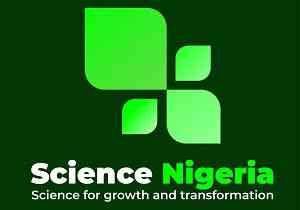
The National Information Technology Development Agency (NITDA) and Google have firmed up their collaborative measures toward improving the digital ecosystem.
Receiving the Google West Africa director, Juliet Ehimuan and the government relations and public policy team in his office in Abuja, NITDA’s director-general, Mallam Kashifu Abdullahi, noted that the symbiotic relationship between both organisations would enable the adequate representation of data. He said this is in line with the implementation of the National Digital Economy Policy and Strategy (NDEPS) for a digital Nigeria.
“Together, we can achieve greater results. Governmental regulations are not to stifle or be an obstacle to your business; rather, it is to enable and unlock more opportunities and protect your business and our citizens.
“Today, our lives depend mostly on this digital technology and your business contributes to meeting this demand.
“If we can come together to strengthen the collaboration, we will eliminate duplication of efforts and working in silos.”
He affirmed that NITDA is currently engaging other tech innovators like Mastercard to improve the ecosystem and collaborating on digital literacy, cyber security and some of the NITDA Strategic Roadmap and Action Plan (SRAP 2021-2024, including data protection).
Abdullahi lamented that the lack of adequate data misrepresented information that would have attracted more foreign investors to the country.
“If nobody shares success stories, people will think nothing is happening in the ecosystem.
“We read what you tell and show us and it helps in our decision-making because we believe in Google,” he added.
The NITDA boss maintained that the algorithm must be ethical in the core values, laws and culture, noting that technology can be compromised through gender imbalance or racism. He blamed the situation on insufficient data and clamoured that working with locals to make indigenous content could avert such breaches.
He mentioned that four weeks ago, the minister led a team from the ministry to the Lagos ecosystem, where he met with most of the players in the sector. They shared some of the pinpoints to be presented to the Federal Executive Council (FEC) and sought approval for things we need to do to help the ecosystem.
Abdullahi applauded the effort of Google in the capacity-building of Nigerians with a target to train 5 million Nigerians. He implored that such records be made available to capture the degree of digital literacy in Nigeria because President Muhammed Buhari’s government aims to achieve 95 per cent digital literacy by 2030.
In her remarks, Ehimuan thanked NITDA for being one of Google’s key partners and stakeholders in the public sector with a long-standing relationship. She acknowledged past collaborative efforts between both organisations, saying that her organisation is looking forward to continued collaborations.
While noting that the courtesy visit identifies possible areas for further collaboration, she physically introduced members of her team as Adewole Adene and Dawn Dimowo who shared updates on some of the work and initiatives that Google West Africa has been doing in the tech space within the country and finally get feedback on Nigeria’s top priorities on the ecosystem.
Ehimuan confirmed that Google has invested in helping to build the digital ecosystem with all the government and private sector partners for almost a decade.
“In October last year, we had an event ‘Google for Africa’. During that event, we had our global CEO pledge, on our behalf, a $1billion investment in Africa over five years.
“As for access, we have recently acquired a submarine cable called ‘Equiano’ in partnership with a service provider in this environment, which is landing in Nigeria on April 21, 2022. Forecasts are indicating that a lot of people are coming online – at least, 300 million more Internet users in Africa over the next five years – so there will be more demand for the Internet. Following the Covid pandemic, we saw a lot of migration online and acceleration in terms of digital engagement, which will create more demand, and its capacity will have a huge contribution to the GDP growth with the technology adoption and job creation.
“Our initial estimate is to contribute directly and indirectly to create about 1.6 million jobs over time and work around device financing in partnership with telcos to make sure that people have access either through infrastructure or device data to gauge the digital world,” she disclosed.
According to Ehimuan, Google is engaging in a lot of capacity building. Both organisations have a shared interest in providing free digital skills training to over 6 million people since 2017 when it pledged to train 10 million Africans in other notable areas of support contributing to the economic prosperity and education in ICT.
“There is a $40 million grant to NGOs; $20million will be in cash and $20 million in art credits,” she added.



